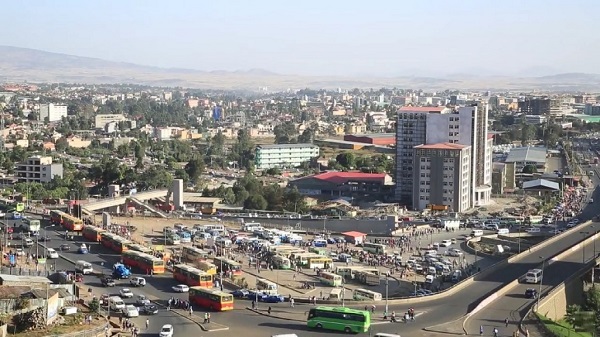
Addis Ababa, the capital of Ethiopia as well as the seat of the African Union Commission, is a booming, cosmopolitan city in the heart of a poor, rural country
By Ellie O’Byrne (Irish Examiner) |
In the Bole area of Addis Ababa, gorgeous young women take selfies at a trendy juice bar on their iPads.
Metres away, street children high on exhaust fumes stagger through traffic, hands outstretched beseechingly for alms.
The booming Ethiopian capital is a viewing deck on the jagged cliff-face of capitalism.
Ethiopia’s regional diversity and unique uncolonized history make it an unforgettable destination.
Numerous tour companies offer high-end, hermetically sealed encounters with Ethiopia; you see jeep-loads of rich Europeans disgorging at the biggest hotels in Addis, road-weary from tours of the country’s countless attractions.
Ethiopia was the first Christian country in the world, and the seat of the Abyssinian empire. Its mountain highlands are the birthplace of coffee.
From the Afar valley came early human ancestors like 3.2-million-year-old Lucy, the fossilized Australopithecus also known as “Dinkinesh,” which endearingly translates as “you are marvelous” in Amharic, the official language.
Following a bumper year for tourism in 2015, when Ethiopia was named Best place to Travel in 2015 by the European Council on Tourism despite a severe drought and mounting food insecurity in some regions, 2016 was beset with greater difficulties.
The government declared a six-month State of Emergency in following 55 deaths in a violent riot in the Omoria region, where the country’s majority ethnic group, the Omoro, threatened insurgency in a series of progressively larger protests against government, who, they say, disproportionately represent the interests of a powerful Tigrayan minority.
Read the complete story at Irish Examiner
——
See also:
- Gondar: The Camelot of Africa
- Shashamane: Shashe’s Hospitality
- In Ethiopia, a Search for the Lost Ark of the Covenant
- Go to Ethiopia for Ancient History, Jazz, and a Capital City on the Rise
- Having the Best out of Both: Holiday Season and Ethiopia’s Delightful Adventures
